#1771
Photo


on my way home
291 notes
·
View notes
Text
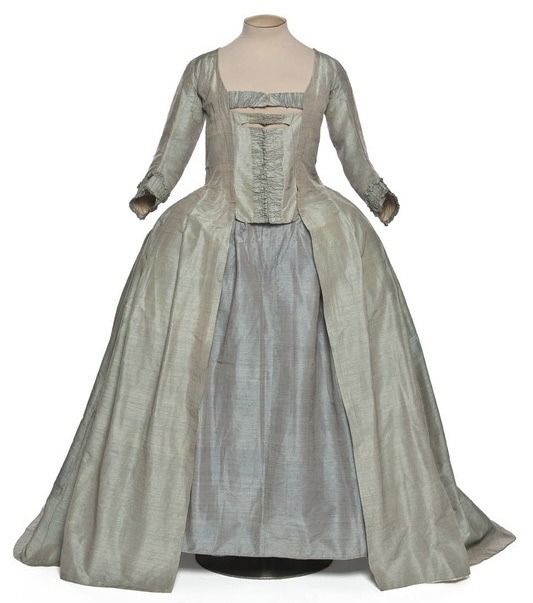
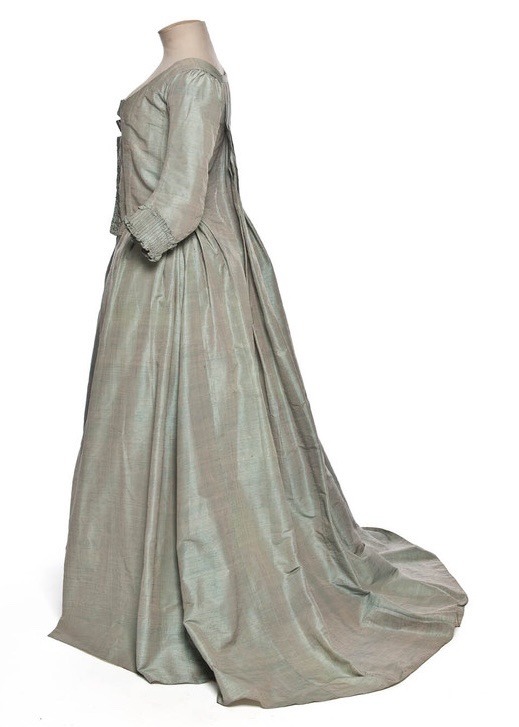
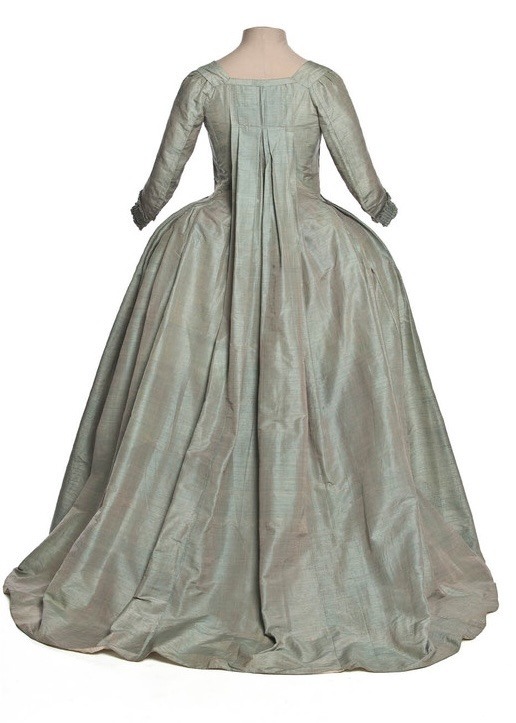
Blue Silk Robe à la Française, 1770-1779, French.
Musée des Arts Décoratifs Paris.
#womenswear#extant garments#dress#silk#18th century#mad Paris#musée des arts décoratifs paris#1770#1770s#1770s dress#1770s france#France#French#robe à la française#reign: louis xvi#reign: louis xv#1771#1772#1773#1774#1775#1776#1777#1778#1779#1770s extant garment
34 notes
·
View notes
Text
Among the vocal performers I had the happiness to hear the celebrated Mrs. —, whose voice was so loud and so shrill, that it made my head ake through excess of pleasure.
Tobias Smollett, The Expedition of Humphry Clinker
#the expedition of humphry clinker#tobias smollett#1771#1770s#18th century#scottish literature#queue pierce my soul
10 notes
·
View notes
Text

Letitia Leigh, Thomas Gainsborough, 1768-71
#Letitia leigh#Thomas gainsborough#gainsborough#1768#1769#1770#1771#1760s#1770s#1700s#18th century#portrait#painting#art
11 notes
·
View notes
Photo

1771 Map of US Colonies of Massachusetts Bay, New Hampshire, Connecticut, and Rhode Island.
140 notes
·
View notes
Text
24 Days of La Fayette - December 24th: Doctor James McHenry
I hope that everybody who celebrates Christmas has a most happy and blessed day!
There were no posts these last few days because life simply got in the way. But they will follow in a few days. :-)
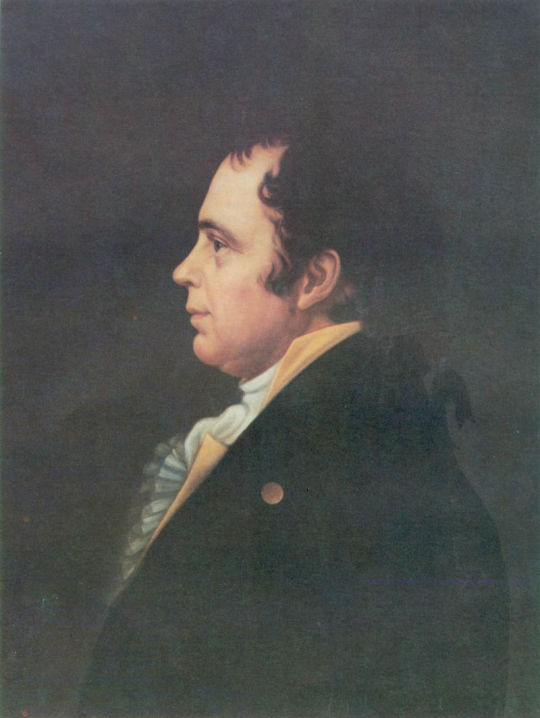
On this last day we focus on the most famous (and probably the most beloved by the modern audience) aide-de-camp of La Fayette – Doctor James McHenry. I purposely kept the part about his life before and after his tenure as aide-de-camp to La Fayette brief. Not because there is not enough information, quite the contrary – McHenry was very involved in the politics and social life of the young Republic, and one could fill volumes with his life and actions.
He was born on November 16, 1753 in Dublin and was educated there before emigrating to Philadelphia in 1771. After a short pause, he continued to study medicine under Doctor Benjamin Rush, one of the signers of the Declaration of Independence. He joined the war effort out of patriotism for his new home and worked at the American Continental Hospital in the fall of 1775 before being appointed surgeon for the 5th Pennsylvania Regiment on August 10, 1776. He was captured during the assault on Fort Washington on November 16 of the same year and spend his time treating fellow prisoners of war. McHenry was part of a prisoner exchange in March of 1778, and he returned to the army and served as a surgeon during the encampment in Valley Forge. In May of 1778 he accepted George Washington’s offer to become one of his assistant secretaries. Two years later, in 1780, McHenry was yearning for a change.
James McHenry wrote to George Washington on July 18, 1780:
I would beg leave to mention to your Excellency, a matter, in which I feel too much to be longer without laying it before you. The approaching campaign opening an interesting field, makes me desirous to appear, in a more military character, than that I now hold. I have also had before me for some time past, a prospect of visiting Europe; and especially those places where our interest is most cherished: And as my present character, of secretary, is not in the same estimation, there, as with us, I would therefore request your Excellency, that I may be considered as a volunteer. Hitherto, I have acted without pay, and it is my intention to receive none in future, unless some alteration in my circumstances render it necessary. If I receive your permission, to come as a volunteer, or accept such a station in the army as may place me, wholly, in a military light, I shall be happy, because, in it, I combine, with what I owe myself, that duty proper to my country.
“To George Washington from James McHenry, 18 July 1780,” Founders Online, National Archives, [Original source: The Papers of George Washington, Revolutionary War Series, vol. 27, 5 July–27 August 1780, ed. Benjamin L. Huggins. Charlottesville: University of Virginia Press, 2019, pp. 175–176.] (12/21/2022)
In alignment with McHenry’s remarks that he desired a more “hands-on” position in the army and desired to be employed in a military position, he transferred to La Fayette’s staff in August of 1780 and became the Marquis’s voluntary aide-de-camp. While an aide-de-camp was still a far cry from a field-command, the position was more military than the position of a secretary.
Alexander Hamilton wrote to James Duane on July 22, 1780:
I take the liberty my Dear Sir to request your interest for a friend of mine and a member of the family, Dr McHenry. He wishes to quit a Station which among foreigners is not viewed in a very reputable light and to get into one more military. He will go into the Marquis’s family as an aide. He has been in the army since the commencement of the War—first in the medical line, since the 15th of May 78, as a Secretary to the Commander in Chief. You know him to be a man of Sense and merit. A more intimate acquaintance with him makes me hold him as such in an eminent degree. He has now no military existence properly speaking—no rank. I believe he is not immoderate.
“From Alexander Hamilton to James Duane, [22 July 1780],” Founders Online, National Archives, [Original source: The Papers of Alexander Hamilton, vol. 2, 1779–1781, ed. Harold C. Syrett. New York: Columbia University Press, 1961, pp. 363–364.] (12/21/2022)
In his new position, McHenry was a direct witness to one if not the greatest scandal during the American Revolution – McHenry was at the breakfast table with Benedict Arnold when Arnold received the letter informing him of John André capture. La Fayette wrote to the Chevalier de La Luzerne on septembre 26, 1780:
When we left Fishkill yesterday we were preceded by one of my aides-de-camp and the aide of General Knox, who found General and Mrs. Arnold at table and joined them for breakfast. While they were there, two letters were brought to General Arnold informing him of the capture of a spy. He ordered a horse to be saddled, then went upstairs to his wife to tell her he was ruined, and commanded his aide-de-camp to tell General Washington that he was going to West Point and would return within an hour.
Idzerda Stanley J. et al., editors, Lafayette in the Age of the American Revolution: Selected Letters and Papers, 1776–1790, Volume 3, April 27, 1780–March 29, 1781, Cornell University Press, 1980, pp. 179-180.
It was around the same time that McHenry set out to secure a fixed rank for himself, since under La Fayette he was only employed as a volunteer. He benefited in his endeavor from the help of his former fellow staff-member, Alexander Hamilton. Philip Schuyler wrote to Alexander Hamilton, his future son-in-law, on September 16, 1780:
I have communed with the Governer on the Subject of McHenrys wish; he is very much disposed to use his Influence on the occasion but doubts if he should be able to obtain a lieutenancy unless the Ensigns that now are could all be provided for. If McHenry merely wants military rank for the campaign and will not accept of an Ensigncy, The Governor can and will give him a Lieut Colonelcy in the State levies, which will always give him rank in our militia and Consequently in the army when the militia is in the field; but this must be determined before the legislature rises; please therefore to desire McHenry to write me on the Subject without delay, and to assure him of my best services in my power.
“To Alexander Hamilton from Philip Schuyler, 16 September 1780,” Founders Online, National Archives, [Original source: The Papers of Alexander Hamilton, vol. 2, 1779–1781, ed. Harold C. Syrett. New York: Columbia University Press, 1961, pp. 432–434.] (12/21/2022)
Congress eventually granted James McHenry the rank of Major (although not everybody was exactly happy with this agreement) in April of 1780. General Greene had spoken out in McHenry’s favour and had possible tipped the scale in McHenry’s favour.
Report
9th and 10th That Tench Tilghman Esq: receive the Commission of Lieut. Colonel to take Rank from and Doctor McHenry the Commission of Major to take Rank from.
Remarks
9th—and 10th—Mr Tilghmans Commission to be dated the 1st of april 1777. Mr McHenrys from the time at which Genl Greene applied in his favr—(last Octobr).
“Report and Remarks, 3 April 1781,” Founders Online, National Archives, [This is an Early Access document from The Papers of George Washington. It is not an authoritative final version.] (12/21/2022)
In the General Orders for June 5, 1781 we can read the following:
That Doctor James McHenry receive the Commission of Major in the Army of the United States to take rank from the 30th of October last.
“General Orders, 5 June 1781,” Founders Online, National Archives, [This is an Early Access document from The Papers of George Washington. It is not an authoritative final version.] (12/21/2022)
General Greene was an important proponent of McHenry’s and wrote to George Washington on May 3, 1781:
When I was appointed to the command of this army, I solicited Congress to give Doctor McHenry a majority that he might serve me in the character of an aid. This they refused. I was perswaded when I made the application of the necessity, and since have felt it, most sensibly. Your Excellency can scarsely tell how happy you are in your family and therefore can hardly judge of my situation. I cannot make a second application to Congress upon this subject, nor should I have hopes of succeeding if did, but I shall esteem it a peculiar mark of your Excellency[s] friendship and esteem if you will interest yourself in the matter and get him a Majority.
“To George Washington from Nathanael Greene, 1 May 1781,” Founders Online, National Archives, [This is an Early Access document from The Papers of George Washington. It is not an authoritative final version.] (12/21/2022)
Washington had been aware of Congress initial refusal and was quite angry at the time. He had written to Joseph Jones on January 27, 1781:
I was concerned when I came to Congress to hear so small a favor was refused Genl Greene then going to his new Command as that of granting his request respecting Dr McHenry—from my conversation with Gentlemen on the subject many think the Genl shod have been indulged and if it [can] be done the question will probably be revived This however the Dr shod not be acquainted with least the attempt shod be unsuccessfull.
“To George Washington from Joseph Jones, 27 February 1781,” Founders Online, National Archives, [This is an Early Access document from The Papers of George Washington. It is not an authoritative final version.] (12/21/2022)
Although this affair left some aftertaste, life went on with McHenry as a Major under La Fayette – who was very warmly attached to McHenry. La Fayette wrote on February 15, 1781:
Every Body Says You Are Going to Get Into the Governor's Council. If You Quit the House for the field, I shall Be Very Happy to obtain the Preference in Your Military Employements, and Hoping You know My tender friendship and affectionate Regard for You, will Not lengthen this letter with Assurances from My Heart While the Heart itself must Be known to You. 10 I intend to write You Again in a few days and with Every Sentiment of Attachement and Esteem Have the Honor to be Yours
Idzerda Stanley J. et al., editors, Lafayette in the Age of the American Revolution: Selected Letters and Papers, 1776–1790, Volume 3, April 27, 1780–March 29, 1781, Cornell University Press, 1980, pp. 322-325.
La Fayette was alluding to the fact that McHenry tried to become a member of the Maryland Council. This appointment never came to pass but he instead became a member of the Maryland Board of War and La Fayette often commented in his letters, how industrious McHenry was on behalf of Maryland. His diplomatic ties and great patriotic zeal brought him in an ideal position to function as a liaison officer between La Fayette and civil authorities in Maryland in Virginia. He served under La Fayette during the complete Virginia campaign and during the Battle of Yorktown.
Towards the end of 1781 Nathanael Greene wrote to La Fayette and asked if McHenry may be transferred into his own staff. La Fayette replied to the request on August 12, 1781:
My Dear General
I Have Received Your letters Concerning Mr. McHenry, And Have Considered them with that Attention I pay to Every thing that Concerns You, and that interest which is founded upon My Most affectionate friendship.
McHenry is So well Acquainted with My Sentiments for Him that He knows My attachement is independant of whatever Steps He Might take on the occasion. He knows I am not of a temper that finds faults with the Measures of My friends, and that I will ever feel an obligation to the Man who obliges General Greene.
Give me leave to observe, My dear Sir, that upon Every principle
which Makes Mr. McHenry Useful to you, He Must in My Circumstances Be Still more useful to me. I May add that Clel. Nevill and Mr. Langhorne Being prisoners, I Have No aid de Camp But McHenry and Washington, But I am willing to give up My interest to your wishes, and McHenry's Remaining Some time with me is owing to an other Circumstance.
He is far from Being determined to Accept of a Military Commission. He Has Expectations of a Seat in the Senate and would much prefer it. This will Be determined Next Month and was He Now to join you it would Seem He Renounces an object which He expects without Sollicitation But which He would Seem to give up By going to So far a Distance.
The Matter Being Such Stated, My dear general, You will Be able to determine what to wish. You ask My Consent, and I Give itHeartly or to speak Better affectionately for tho' I will Be glad He joins you I Cannot Help Being Sorry to part from Him. But I Sincerely think if He Has no Senatorial prospects He ought to pay you a visit. It is His Intention, and I will not only Consent But join with you and with Him in that desire and that opinion. Should I go to France towards the End of the winter, and Should He wish to devote that time to travels I am Sure you would Return me the Sentiment I evince to you when I advise McHenry to join for a time your family. With the Most tender affection Your friend for ever
Idzerda Stanley J. et al., editors, Lafayette in the Age of the American Revolution: Selected Letters and Papers, 1776–1790, Volume 4, April 1, 1781–December 23, 1781, Cornell University Press, 1981, pp. 318-219.
Greene had previously on July 24, 1781 written to McHenry:
I wish you with me exceedingly; but there is no inconvenience to which I will not subject my self to oblige the Marquis
Idzerda Stanley J. et al., editors, Lafayette in the Age of the American Revolution: Selected Letters and Papers, 1776–1790, Volume 4, April 1, 1781–December 23, 1781, Cornell University Press, 1981, p. 319.
Since McHenry was elected to the Senate of Maryland on September 12, 1781, he never joined Greene’s staff and resigned his commission in December of that year. He would continue to have a prosperous career as a physician as well as a politician. Among other things, he served as Secretary of War, both under President George Washington and under President John Adams.
James McHenry died on May 3, 1816.
#24 days of la fayette#la fayette's aide de camps#james mchenry#marquis de lafayette#la fayette#letters#george washington#founders online#1753#1816#french history#american revolution#american history#history#nathaneal greene#benedict arnold#john andré#1771#1775#1776#1778#1780#1781#alexander hamilton#philip schuyler#continental congress#joseph jones#james duane#chevalier de la luzerne
47 notes
·
View notes
Photo
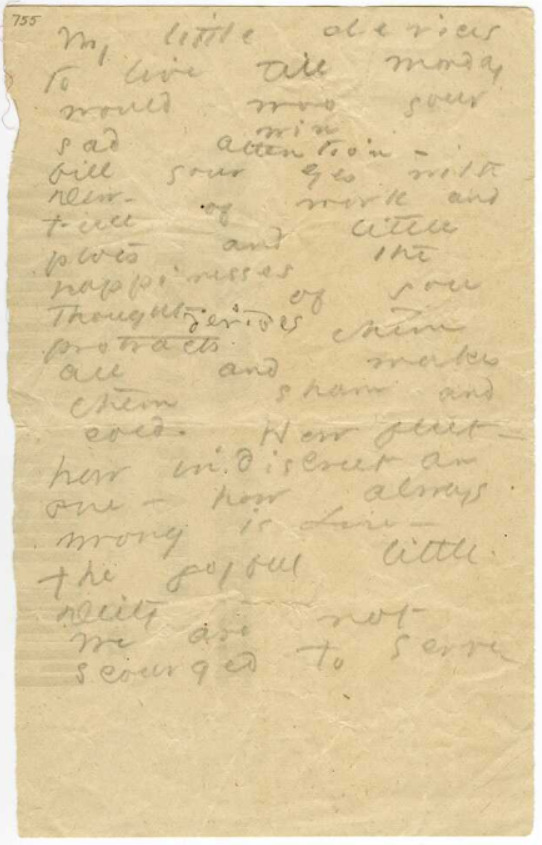
My little devices to live till Monday* would woo (win) your sad attention - (fill your eyes with Dew) - Full of work and plots and little happinesses the thought of you protracts (derides) them all and makes them sham and cold.
How fleet - how indiscreet an one -
how always wrong is Love -
The joyful little Deity
We are not scourged to serve -
Emily Dickinson, scrap letter #695/J1771 (1881)
to Judge Otis Phillips Lord
*During this period of their lives, Dickinson and Lord wrote each other letters every Sunday. Those “little devices” arrived on Monday.
#judge otis phillips lord#emily dickinson#dickinson#letters#love letters#poetry#manuscripts#lit#literature#literary history#1771#j1771#l695#justice for judge lord
27 notes
·
View notes
Text

L'alquimista a la cerca de la Pedra filosofal, per Joseph Wright of Derby. Oli en tela, 1.270 x 1.061 cm; 1771.
2 notes
·
View notes
Text
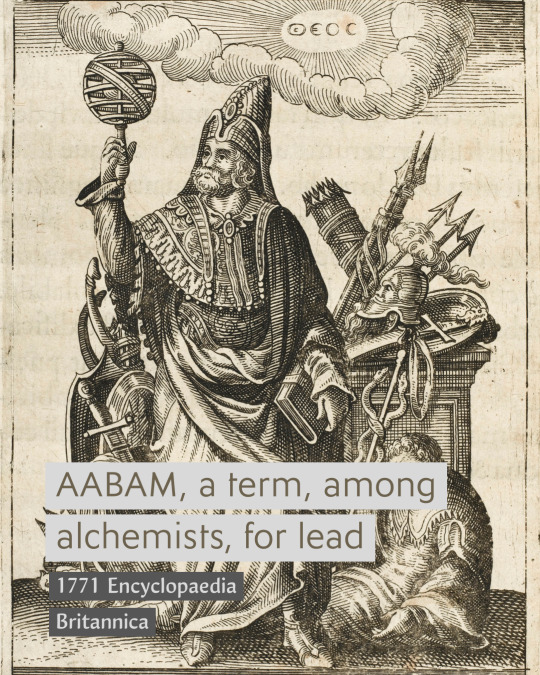
Lost words: AABAM, a term, among alchemists, to signify lead
#found#dictionary#lost words#alchemy#encyclopaedia Britannica#1771#lead#aabam#cultural archeology#found word#history#chemistry#history of science
2 notes
·
View notes
Text
Ann, an Oxford Milliner, published this letter in Jackson's Oxford Journal in September 1771:
The Mercer's (but more properly the Merciless Company) threatening me with an immediate Distress, if I do not leave off my Business or purchase a Freedom of the Company which would cost about £20; a Sum almost equal to the whole I possess.
"Normal Women: 900 Years of Making History" - Philippa Gregory
#book quote#normal women#philippa gregory#nonfiction#oxford#milliner#letter#jackson's oxford journal#september#1771#mercer's#merciless#threatened#distress
0 notes
Text
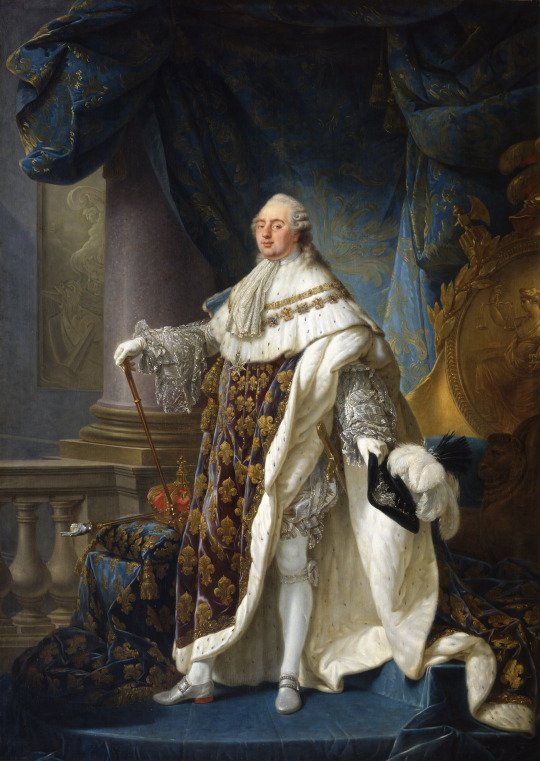

1. Portrait of Louis XVI of France in Coronation Robes (1771) by Antoine-François Callet
2. A Norman Milkmaid at Gréville (1871) by Jean-François Millet
#Portrait of Louis XVI of France in Coronation Robes#1771#Antoine-François Callet#A Norman Milkmaid at Gréville#1871#Jean-François Millet#art#painting#Miss Cromwell
1 note
·
View note
Text
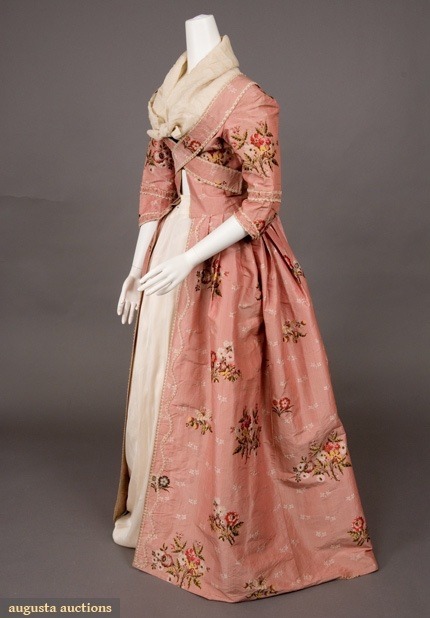

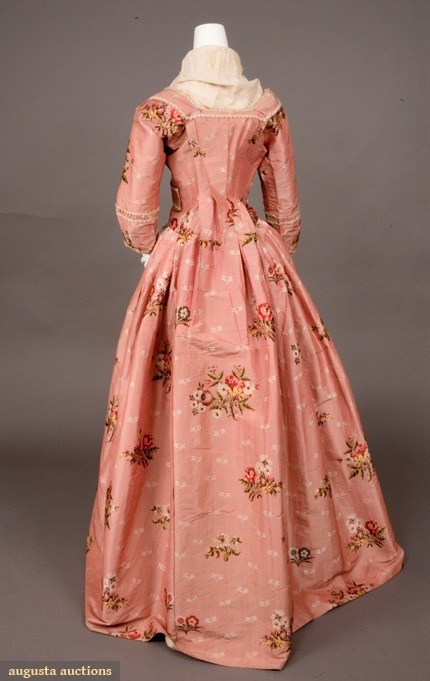
Peach Pink Robe à la Française, 1770-1780.
Augusta Auctions.
#womenswear#extant garments#silk#Chinese silk#peach#pink#peach pink#18th century#robe à la française#Augusta auctions#1770s#1770s dress#1771#1772#1773#1774#1775#1776#1777#1778#1779#1780#1770s extant garment
22 notes
·
View notes
Text
I know you will say, G. H—- saw imperfectly through the mist of prejudice, and I am rankled by the spleen - Perhaps, you are partly in the right; for I have perceived that my opinion of mankind, like mercury in the thermometer, rises and falls according to the variations of the weather.
Tobias Smollett, The Expedition of Humphry Clinker
#the expedition of humphry clinker#tobias smollett#1771#1770s#18th century#scottish literature#queue pierce my soul
0 notes
Photo
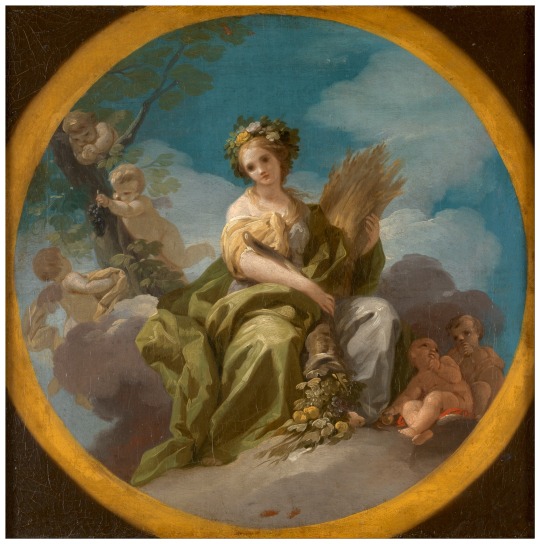
Abundance, Jose del Castillo, 1770-71
5 notes
·
View notes
Text
Die Suche nach dem Schatz der Nibelungen
Liebe, Freundschaft, Eifersucht und Missgunst, Intrigen und Mord versprechen einen spannenden historischen Roman. @Ralf Dorweiler verbindet die Nibelungen und Goethe mit einem uralten Handwerk (erschienen im @Lübbe Verlag). Hört den #Podcast!
Die Mission des Goldwäschers von Ralf H. Dorweiler
St. Gallen, 1771. Der Buchhändler Magnus von Auenstein bereitet eine Reise gemeinsam mit seiner Tochter und Bruder Melchior entlang des Rheins vor. Ziel ist es, am längsten Tag des Jahres bei Speyer einen Schatz zu heben. Gleichzeitig schürfen die Freunde Frieder, Armin und Ruedi in Neuenburg am Rhein. Der Markgraf möchte aus dem seltenen…

View On WordPress
0 notes
Text
24 Days of La Fayette: December 22nd – Jean-Baptiste, Chevalier de Gouvion
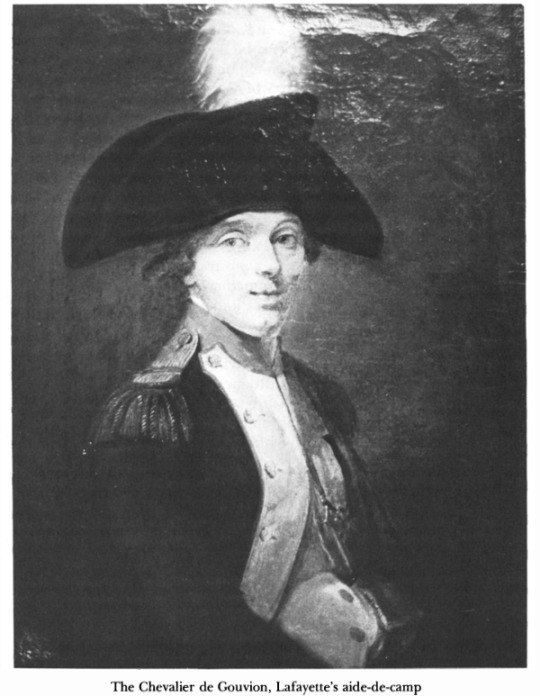
Idzerda Stanley J. et al., editors, Lafayette in the Age of the American Revolution: Selected Letters and Papers, 1776–1790, Volume 3, April 27, 1780–March 29, 1781, Cornell University Press, 1980, p. 251.
Jean-Baptiste, Chevalier de Gouvion was born on January 8, 1747 to Jean François Gouvion and Marguerite Catherine Olry. He was the oldest of at least thirteen children. His father was a police officer and several of his brothers and cousins found their way into the army, often as engineer’s and often in high-ranking positions. At least one of his cousins was later knighted – like Gouvion himself.
Gouvion joined the army as an engineer. He had been commissioned first lieutenant of engineers in 1771, and later decided to join the War in America. He became a brevet captain shortly prior to his departure. Contrasting to La Fayette, Gouvion was permitted to do so. He sailed from Nantes on March 5, 1777 with a group of French military engineers. The expedition was organized by Benjamin Franklin. The group arrived in North Carolina and travelled to Philadelphia, there to present themselves to the Continental Congress on July 5, 1777. He was granted the rank of major of engineers and on November 17, 1777 he was made a lieutenant-colonel.
The Marquis de La Fayette valued Gouvion’s skills and character and after a visit to several native American tribes, La Fayette send Gouvion to oversee the construction of a small fort. He wrote in his Memoirs:
The Oneidas and the Tuscaroras, our only true friends, asked for a fort, and M. de Lafayette left with them M. de Gouvion, a French officer who had a rare combination of intelligence, talent, and virtue. Whenever the army needed Indians, or there was any business to be conducted with those tribes, they always had recourse to the influence of M. de Lafayette, whose necklaces and words the Indians respected.
Idzerda Stanley J. et al., editors, Lafayette in the Age of the American Revolution: Selected Letters and Papers, 1776–1790, Volume 1, December 7, 1776–March 30, 1778, Cornell University Press, 1977, p. 248.
Gouvion enjoyed La Fayette’s complete trust, and his skills soon impressed several other officers, amongst them George Washington. Gouvion was accompanied by another man that would go one to become one of La Fayette’s aide-de-camps – Louis Tousard. When Gouvion’s work was finished, La Fayette wrote to Henry Laurens on June 7, 1778:
Clel. Gouvion is just coming from the indians. That gentleman has been of a greater use to America among them than it is possible to say. It is uncommon to join a greater modesty, to greater science, more agreable [illegible word] and more profound parts as an officer and gentleman.
Idzerda Stanley J. et al., editors, Lafayette in the Age of the American Revolution: Selected Letters and Papers, 1776–1790, Volume 2, April 10, 1778–March 20, 1780, Cornell University Press, 1978, p. 71.
Gouvion found himself again in the employ of La Fayette during the continuation of the campaign of 1778. The Marquis wrote to the Comte D’Estaing on July 30, 1778:
Since General Washington told me to take an engineer with me, I took and now send to Providence M. de Gouvion, captain in France in the engineering regiment, who lives up to the most flattering idea one might have of him.
Idzerda Stanley J. et al., editors, Lafayette in the Age of the American Revolution: Selected Letters and Papers, 1776–1790, Volume 2, April 10, 1778–March 20, 1780, Cornell University Press, 1978, pp. 124-125.
On the same day, La Fayette also wrote to General John Sullivan with whom he was supposed to rendezvous:
I send forward to you Lt. Colonel Gouvion of the engeneers whom I have brought with me. He is one of the most sensible and worthy gentlemen I ever met with. His military knowledge in the engeneery way is compleat. In a word I have selected and desir’d him from Gal. Porta'll as the very man I was glad to have with us.
Idzerda Stanley J. et al., editors, Lafayette in the Age of the American Revolution: Selected Letters and Papers, 1776–1790, Volume 2, April 10, 1778–March 20, 1780, Cornell University Press, 1978, p. 126.
By the end of 1778, Gouvion worked for Major General Alexander McDougall at West Point. McDougall wrote to George Washington on December 10, 1778:
But to effect this, and secure West Point, I shall want more heavy Cannon, I wish therefore to have your Excellency’s Order for those at Boston, which I am informed are subject to it. Cannot Some of the Somerset’s Cannon be procured for those important purposes? If either can be procured, no Time should be lost. It is for those Services I request Colonel Delaradiere or Lieut. Colonel Gouvion to be with me, to assist me in whatever I may be deficient in Science. The latter I would prefer, if he is equally qualifyed. (…) I have directed Lieutenant Colonel Gouvion the Engeneer, to repair to West Point with me to make an accurate Report of the present State of the works.
“To George Washington from Major General Alexander McDougall, 10 December 1778,” Founders Online, National Archives, [Original source: The Papers of George Washington, Revolutionary War Series, vol. 18, 1 November 1778 – 14 January 1779, ed. Edward G. Lengel. Charlottesville: University of Virginia Press, 2008, pp. 389–393.] (07/04/2023)
George Washington replied on December16, 1778:
You will detain Colo. Gouvion with you ’till you hear further on the subject. General Du Portail, to whom I generally leave the particular arrangements of his Corps, is now at Philadelphia. Inclosed is a line to Mr Gouvion directing him to continue with you ’till further orders.
“From George Washington to Major General Alexander McDougall, 16 December 1778,” Founders Online, National Archives, [Original source: The Papers of George Washington, Revolutionary War Series, vol. 18, 1 November 1778 – 14 January 1779, ed. Edward G. Lengel. Charlottesville: University of Virginia Press, 2008, pp. 425–426.] (07/04/2023)
McDougall was delighted by Gouvion’s work and Gouvion would continue to work at West Point and surrounding sites like Stoney Point and King’s Ferry for the whole of 1779. He lend his talents to Generals Wayne, Woodford and Heath among others.
By August of 1779 he took a short break from his engineering duties and sat on the court martial for Colonel Armand. See the General Orders from August 5, 1779:
The Commander in Chief directs a General Court Martial to sit at the ussual place tomorrow morning ten ôclock for the trial of Colonel Armand.
Colonel Stewart to preside.
Colonel Gouvion, Lieutenant Colonels Ford, Dubuisson & Littlefield; Majors De La Neuville, Leavensworth & Ville Franche Captain Du Ponceau and a Captain from the Maryland Pennsylvania and Connecticutt Lines and the Garrison to attend as Members.
“General Orders, 5 August 1779,” Founders Online, National Archives, [Original source: The Papers of George Washington, Revolutionary War Series, vol. 22, 1 August–21 October 1779, ed. Benjamin L. Huggins. Charlottesville: University of Virginia Press, 2013, pp. 35–37.] (07/04/2023)
By early 1780, the question of Gouvion’s future in the Continental Army arose. Washington wrote a letter on January 2, 1780 to Samuel Huntington:
Congress were pleased by their resolution of the 1st of January last to express their desire of retaining Brigadier General Du Portail, Colonels La Radiere and Laumoy, and Lt Col. De Gouvion in the service of these states for another campaing, if agreeable to them. These gentlemen having accepted the invitation, have now completed the term to which it extended; and it is with pleasure I can inform Congress that their subsequent conduct has more than justified the opinio⟨n⟩ expressed in my letter on which that resolution is founded. They have been particularly useful in the course of this last period, and have acquired general esteem and confidence⟨.⟩ I cannot forbear adding that the better the gentleman at the head of the corps is known the more he is found to be a man of abilities, and of distinguished military merit.
“From George Washington to Samuel Huntington, 2 January 1780,” Founders Online, National Archives, [Original source: The Papers of George Washington, Revolutionary War Series, vol. 24, 1 January–9 March 1780, ed. Benjamin L. Huggins. Charlottesville: University of Virginia Press, 2016, pp. 8–10.] (07/04/2023)
Prompted by a letter from Brigadier General Duportail from April 2, 1780 to George Washington, Gouvion was for a short time transferred to Washington’s command. The commander-in-chief wrote on April 28, 1780 to Major General Robert Howe:
General DuPortail being gone to the Southward, it is necessary that Col. Gouvion should repair to this army. If there are any previous arrangements you wish him to make, you will be pleased to direct him to make them and to set out for Head Quarters as speedily as he can.
“From George Washington to Major General Robert Howe, 28 April 1780,” Founders Online, National Archives, [Original source: The Papers of George Washington, Revolutionary War Series, vol. 25, 10 March–12 May 1780, ed. William M. Ferraro. Charlottesville: University of Virginia Press, 2017, pp. 505–506.] (07/04/2023)
These arrangements did not last long however, since Gouvion’s arrival was delayed and by June 26, 1780, Washington had ordered Gouvion to return to West Point. Therefore, by 1780, Gouvion again worked on the fortifications of West Point. In General Duportail’s absence, he was the commander of the corps of engineers and effectively displaced Colonel Thaddeus Kosciuszko, who had previously been the chief engineer at West Point. Kosciuszko wrote Washington on July 30, 1780:
To this day I have not received your Excellencys order respecting my destination, having nothing to do at present as all the artifficers are directed to receive Leut. Colo: Gouvions orders, I beg your Excellency to give me permision to leave the Engeneer Department and direct me a Command in the Light Infantry in the Army under your immediate Command or the Army at the Southward agreable to my ranck I now hold.
“To George Washington from Colonel Thaddeus Kosciuszko, 30 July 1780,” Founders Online, National Archives, [Original source: The Papers of George Washington, Revolutionary War Series, vol. 27, 5 July–27 August 1780, ed. Benjamin L. Huggins. Charlottesville: University of Virginia Press, 2019, p. 359.] (07/04/2023)
It was around this time, in late 1780, after Arnolds Treason, that Gouvion wished to join La Fayette as an aide-de-camp. The Marquis wrote Nathanael Greene on November 10, 1780:
Upon My Giving a hint to Clel. Gouvion that I had Some desire of joining you, he has Earnestly Requested I would take him as a Volonteer aid de Camp.
Idzerda Stanley J. et al., editors, Lafayette in the Age of the American Revolution: Selected Letters and Papers, 1776–1790, Volume 3, April 27, 1780–March 29, 1781, Cornell University Press, 1980, p. 223.
Shortly after Arnold’s treason has become public, Gouvion with a small party of men had arrested Joshua Hett Smith. Now he was sent with La Fayette to inspect the Forts Lee and Washington and La Fayette praised that Gouvion “with the eyes of an engineer” would see things that he himself missed. In March of 1781, Gouvion was permitted by George Washington to meet with General Rochambeau to pay his respects and to meet with friends that served under Rochambeau.
On April 8, 1781, Washington wrote to La Fayette:
It is General duPortails desire that Colo. Gouvion may return to him. Independant of the occasion which there may be for him here, there is another reason which operates against his going with you, it is, that he would interfere with Colo. Kosciusko who has been considered as the commanding Engineer with the southern Army.
“From George Washington to Marie-Joseph-Paul-Yves-Roch-Gilbert du Motier, marquis de Lafayette, 8 April 1781,” Founders Online, National Archives, [This is an Early Access document from The Papers of George Washington. It is not an authoritative final version.] (07/04/2023)
To which La Fayette replied on April 13, 1780:
I Have Received Your Excellency’s Letter Relating to Clel Gouvion—it would Have Been Very Agreable to Me to keep this officer (…)
“To George Washington from Marie-Joseph-Paul-Yves-Roch-Gilbert du Motier, marquis de Lafayette, 13 April 1781,” Founders Online, National Archives, [This is an Early Access document from The Papers of George Washington. It is not an authoritative final version.] (07/04/2023)
When La Fayette took command of troops in Richmond, he wrote Washington on May 24, 1781:
As I am for the present fixed in the command of the troops in this State, I Beg it as a great favor that you will please to send me Clel Gouvion. Should a jonction Be made with General Greene He will act as my aid de camp.
“To George Washington from Marie-Joseph-Paul-Yves-Roch-Gilbert du Motier, marquis de Lafayette, 24 May 1781,” Founders Online, National Archives, [This is an Early Access document from The Papers of George Washington. It is not an authoritative final version.] (07/04/2023)
Washington ordered Gouvion on September 2, 1781, to join La Fayette’s camp in Virginia and there to await his orders. He arrived in camp on September 10. Just after the Battle of Yorktown, Gouvion desired to return home to his native France – he had been in America these past four years. In answer to the application George Washington wrote to General Duportail on October 26, 1781:
In answer to your letter of the 24th I beg leave to inform you, that as no immediate operation requires your presence in this country, I shall most chearfully second your application to Congress for a Six months furlough to yourself & Col. Gouvion for the purpose of arranging your private affairs in France. (…) I cannot forebear addg at the same time it will always afford me the greatest pleasure at all times to give the most particular testimony of the zeal, talents and distinguished services of yourself and Colonel Gouvion—and entreat you to be persuaded of my earnest wish that you may receive those rewards from Congress which you desire, at a more convenient opportunity.
“From George Washington to Antoine-Jean-Louis Le Bègue de Presle Duportail, 26 October 1781,” Founders Online, National Archives, [This is an Early Access document from The Papers of George Washington. It is not an authoritative final version.] (07/04/2023)
Gouvion returned to France on the same ship that brought La Fayette and few other French officers home. Before he left, he received a glowing recommendation from General Washington:
From the particular recommendations of General Du Portail—and from my own particular observation—I feel the highest pleasure in rendering justice to the distinguished military Talents of Lt Colonel Gouvion, and his indefatigable perseverance in the most valuable services—his Decisive judgement and spirit of enterprise have been conspicuous on all occasions—particularly in the late siege of York—where the opening of the Trenches, the commencement of the second parallel—a very important lodgement in two of the Enemys works that were carried Sword in hand, and their connexion with our attacks—were committed to him—and executed under his orders with that energy and precision which constitute the great Engineer.
“From George Washington to Jean-Baptiste de Gouvion, 31 October 1781,” Founders Online, National Archives, [This is an Early Access document from The Papers of George Washington. It is not an authoritative final version.] (07/04/2023)
John Jay noted in his diary that Duportail and Gouvion set out for America on October 15, 1782 and went right back to work. He was apparently in such a demand, that Washington wrote to La Fayette on March 23, 1783:
As it is your wish, I have given Colo. Gouvion my consent to meet you at the rendezvous appointed him—& he sets out with all the alacrity of a friend to attend it. You must receive him as a precious loan because I esteem and value him and because it is to you only I would part with him.
“From George Washington to Marie-Joseph-Paul-Yves-Roch-Gilbert du Motier, marquis de Lafayette, 23 March 1783,” Founders Online, National Archives, [This is an Early Access document from The Papers of George Washington. It is not an authoritative final version.] (07/04/2023)
When Gouvion resigned his commission in October of 1783 to return to France once and for all, now that the War was finished, he had already received numerous official and unofficial recommendations. During his return trip to France, he had received a promotion in the French army, and it was there that he resumed his career. He was promoted to Mestre de camp in 1787.
But the fun should not come too short. We have several invitations from Benjamin Franklin and John Adams for example, as well as protocols of the French chapter of the Society of the Cincinnati that all mention Gouvion. Then we also have this letter from Duportail to George Washington from March 3, 1784:
I saw yesterday for the first time a man in the Clouds and with Colonel gouvion we Regretted that you Could not enjoy so extraordinary view.
“To George Washington from Duportail, 3 March 1784,” Founders Online, National Archives, [Original source: The Papers of George Washington, Confederation Series, vol. 1, 1 January 1784 – 17 July 1784, ed. W. W. Abbot. Charlottesville: University Press of Virginia, 1992, pp. 168–169.] (07/04/2023)
With the begin of the French Revolution and La Fayette’s appointment as commander of the newly formed National Guard, Gouvion joined his old friend and became a Major in the National Guard. He was one of the officers on duty on the night of June 20, 1791. Despite this blunder, he was made a Maréchal de camp on June 30, 1791. On September 7 of the same year, he became a deputy for Paris in the Legislative Assembly but he became disillusioned after the mutiny at Nancy. His brother was one of the commanding officers at Nancy and was killed during the mutiny. Gouvion was enraged by the pardons that some of the troop received and after his episode (and a duel that he fought with a fellow deputy of the assembly, Choudien) left the assembly altogether to again join La Fayette on the field.
Jean-Baptiste, Chevalier de Gouvion was killed in action by a cannonball during the battle at Grisuelle by Maubeuge on June 11, 1792. La Fayette made sure that his friend was buried with all honours.
While this post is long enough as it is, permit me one last quote to illustrate the trust that Gouvion’s character had earned. The Marquis de La Fayette wrote on September 1, 1781:
Inclosed I send you His letter and that of Mis. de St Simon Both of whom I Request you will Have translated By Tilmangh or Gouvion alone as there are parts of them personal which I do not choose to show to others
“To George Washington from Marie-Joseph-Paul-Yves-Roch-Gilbert du Motier, marquis de Lafayette, 1 September 1781,” Founders Online, National Archives, [This is an Early Access document from The Papers of George Washington. It is not an authoritative final version.] (07/04/2023)
#24 days of la fayette#la fayette's aide de camps#marquis de lafayette#la fayette#american history#american revolution#french revolution#french history#history#letter#founders online#george washington#benjamin franklin#jean-baptiste chevalier de gouvion#west point#1747#1771#1777#1778#1779#1780#1781#1782#1783#1784#1787#1789#1791#1792#nathanael greene
14 notes
·
View notes